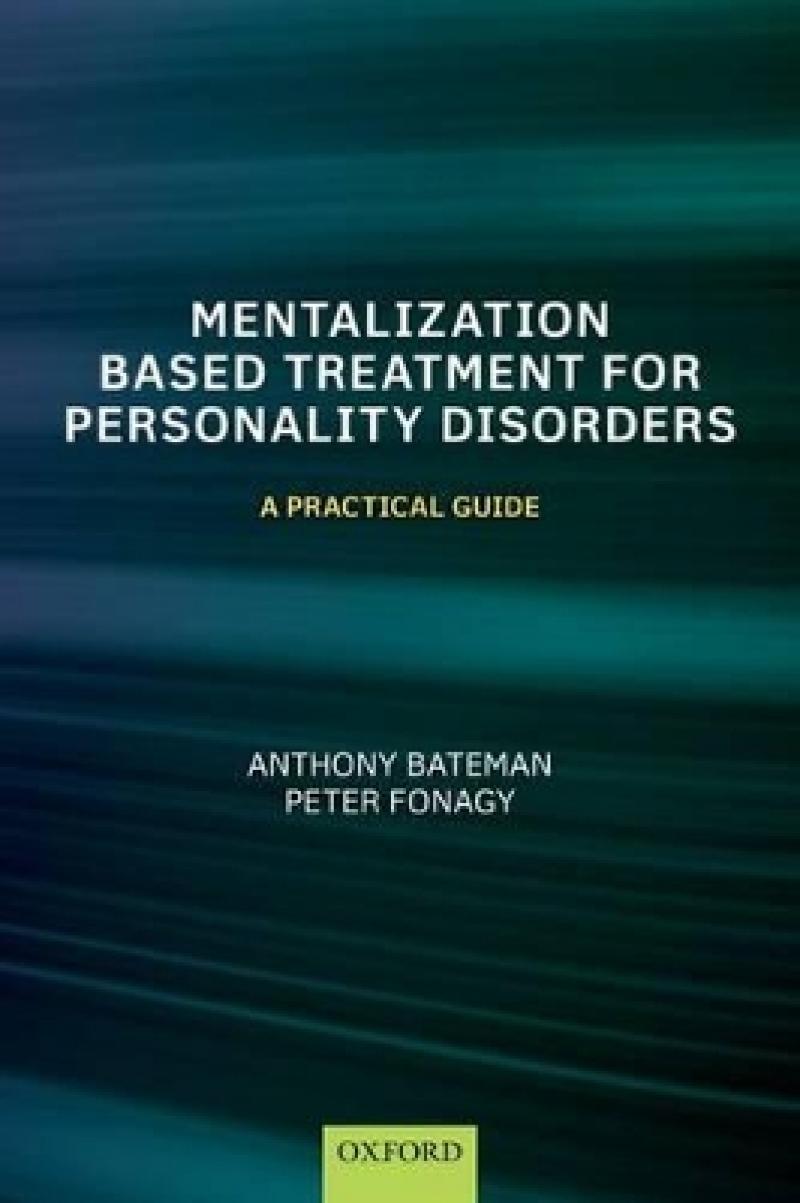Mentalizing - the ability to understand oneself and others by inferring mental states that lie behind overt behaviour - develops within the context of attachment relationships. It is crucial to self-regulation and constructive, intimate relationships, both of which are impaired in personality disorders because of sensitivity to losing mentalizing at times of anxiety and attachment stress. Loss of mentalizing leads to interpersonal and social problems, emotional variability, impulsivity, self-destructive behaviours, and violence.
This practical guide on mentalization-based treatment (MBT) of personality disorders outlines the mentalizing model of borderline and antisocial personality disorders and how it translates into clinical treatment. The book, divided into four parts - the mentalizing framework, basic mentalizing practice, mentalizing and groups, and mentalizing systems - covers the aims and structure of treatment, outlines how patients are introduced to the mentalizing model so that their personality disorder makes sense to them, explains why certain interventions are recommended and others are discouraged, and systematically describes the process of treatment in both group and individual therapy to support more stable mentalizing.
People with personality disorders commonly have comorbid mental health problems, such as depression and eating disorders, which complicate clinical treatment. Therefore, the book advises the clinician on how to manage comorbidity in treatment. In addition, mentalizing problems in families and social systems, for example, schools and mental health services are also covered. A families and carers training and support guide is provided as families and others are often neglected during the treatment of people with personality disorder.
The book is a valuable guide for all mental health workers on how to effectively treat personality disorders.
Les mer
Loss of mentalizing leads to interpersonal and social problems, emotional variability, impulsivity, self-destructive behaviours, and violence. This practical guide on MBT treatment of personality disorders outlines the mentalizing model of borderline and antisocial personality disorders and how it translates into an effective clinical treatment.
Les mer
1. THE MENTALIZING FRAMEWORK; 2. MENTALIZING PRACTICE; 3. MENTALIZING GROUPS; 4. MENTALIZING SYSTEMS
Readers seeking to comprehend recent advances in developmental psychology, the neurosciences, and mentalization-based treatment (MBT) for personality disorders will be well served by this work... This book is highly recommended for clinicians wanting an up-to-date account of the theory and technique of MBT, with useful clinical examples to boot.
Les mer
Highly Commended in the Psychiatry category of the British Medical Association Book Awards 2017.
Practical introduction to the subject of mentalization based treatment (MBT) of borderline personality disorder
Clear explanation of theory - explains the concepts behind MBT clearly
Additional information on ASPD, with brand new material on this condition
User friendly from a clinician's perspective
Les mer
Anthony Bateman - Expert member of National Institute for Clinical Excellence (NICE) development group for treatment guidelines for Borderline Personality Disorder in UK; currently Chair of the National Guideline Development Group for Eating Disorders. NHS clinical services are recognised by NHS England as a national demonstration site for the treatment of personality disorder. President of the European Society for the Study of Personality Disorders (ESSPD) from
2012-2015.
Authored 14 books and over 120 peer reviewed research articles on personality disorder and the use of psychotherapy in psychiatric practice. Received a senior scientist award from British and Irish group for the Study of Personality Disorder in 2012 and in 2015 the annual award for "Achievement in the Field of Severe Personality Disorders" from the BPDRC in the USA.
Peter Fonagy - OBE, FMedSci, FBA, PhD is Head of the Research Department of Clinical, Educational and Health Psychology and Freud Memorial Professor of Psychoanalysis at University College London. He is also CEO of the Anna Freud Centre in London and a Senior Investigator of the British National Institute for Health Research. Professor Fonagy is the recipient of numerous prizes, awards and other honours in the United Kingdom, the United States and internationally. He has published 17 books,
over 400 original papers, and nearly 250 book chapters
Les mer
Practical introduction to the subject of mentalization based treatment (MBT) of borderline personality disorder
Clear explanation of theory - explains the concepts behind MBT clearly
Additional information on ASPD, with brand new material on this condition
User friendly from a clinician's perspective
Les mer
Produktdetaljer
ISBN
9780199680375
Publisert
2016
Utgiver
Vendor
Oxford University Press
Vekt
730 gr
Høyde
233 mm
Bredde
159 mm
Dybde
29 mm
Aldersnivå
P, 06
Språk
Product language
Engelsk
Format
Product format
Heftet
Antall sider
496
